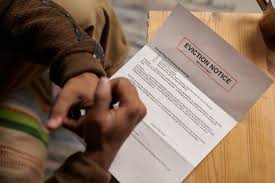Understanding Tenant Rights and Eviction Laws in Texas
In the state of Texas, landlord-tenant relationships are governed by specific laws designed to protect both parties. One of the primary areas of concern and frequent disputes involves eviction procedures. This article, brought to you by Legal Marketplace CONSULTANT, aims to provide an extensive overview of Texas eviction laws, tenant rights, and legal protections in place to prevent unlawful evictions and abuses.
The Legal Framework for Evictions in Texas
Evictions in Texas must follow a legal process established by state law. Landlords are prohibited from evicting tenants without first providing proper legal notice and obtaining a court order. Failure to do so can result in serious legal consequences. Unlawful eviction tactics such as changing locks or removing a tenant’s property without court judgment are strictly illegal and constitute tenant harassment.
Proper Legal Notice Requirement
One of the essential protections for tenants under Texas law is the right to receive timely and proper notice before any eviction process begins. Landlords are required to provide tenants with a written notice to vacate at least three days prior to filing an eviction lawsuit in court. This notice period allows tenants time to respond, remedy any issues such as unpaid rent, or prepare to leave the premises voluntarily.
The notice to vacate must clearly state the reason for eviction, whether it is due to nonpayment of rent, lease violations, or the expiration of the lease term. It serves as a formal demand that the tenant either cures the violation or vacates the rental property.
Illegal Eviction Practices to Avoid
Despite clear legal requirements, some landlords attempt to circumvent the formal eviction proceedings by employing illegal tactics. These unlawful practices include:
- Changing the locks on the rental unit without a court order.
- Removing or disposing of tenant property without permission or judgment.
- Shutting off utilities like water or electricity to force a tenant to leave.
- Using threats, harassment, or intimidation to coerce tenants into vacating.
Such actions violate tenant rights and are subject to legal penalties. Tenants affected by illegal evictions have the right to seek legal remedies and may be entitled to damages.
Court Proceedings for Eviction
If a tenant does not comply with the notice to vacate by either paying owed rent or leaving the property, the landlord may proceed to file an eviction lawsuit, known as a "Forcible Entry and Detainer" suit, in the appropriate county court. This legal process ensures that tenants receive a fair hearing conducted by a judge.
During the court hearing, tenants have the right to present their case, including any defenses such as improper notice, breach of the lease by the landlord, or habitability issues. A judgment will then be issued, either ordering the tenant to vacate or dismissing the eviction if the landlord fails to meet legal criteria.
Tenant Rights and Protections
Texas tenants are afforded several important rights that landlords must respect throughout the tenancy and eviction process. These include:
- The right to proper notice before eviction proceedings commence.
- The right to due process through a court hearing before removal.
- Protection from illegal eviction tactics such as lockouts or utility shut-offs.
- The ability to challenge eviction lawsuits legally with valid defense claims.
- The right to privacy and peaceful enjoyment of the rental property.
- Protections under the Fair Housing Act against discrimination.
Understanding and asserting these rights can prevent abuse and ensure a fair process if disputes arise.
Steps for Tenants Facing Eviction
If you are a tenant in Texas facing a potential eviction, taking prompt and informed actions is crucial. Consider the following steps:
- Carefully review any notice received from your landlord to ensure it complies with legal requirements.
- Communicate with your landlord to discuss possible resolutions such as payment plans or lease amendments.
- Seek legal advice to understand your rights and potential defenses.
- Attend all court hearings related to your eviction case to present your side of the story.
- Document all communications and actions taken, including payments and requests made, for evidence.
- Do not engage in self-help measures that might worsen the situation; follow legal procedures.
How Landlords Should Conduct Evictions
For landlords, adhering strictly to Texas eviction laws preserves their rights and avoids costly legal challenges. Landlords should:
- Provide tenants with a clear and written notice to vacate, respecting the minimum three-day notice period.
- File eviction lawsuits through the court system rather than attempting self-help evictions.
- Avoid changing locks, shutting off utilities, or disposing of tenant belongings without court authorization.
- Serve all legal documents properly and keep records of all interactions.
- Understand tenant rights and local regulations to maintain compliant rental practices.
Common Misconceptions About Evictions in Texas
Many tenants and landlords have misunderstandings about eviction procedures that can lead to confusion and conflict. Common myths include:
- "A landlord can evict a tenant immediately without notice." — In Texas, a legal notice and court order are always required.
- "Changing locks is an acceptable way to force a tenant out." — This is illegal without a court judgment.
- "A tenant can be removed without a court hearing." — Due process rights guarantee a tenant a chance to be heard in court.
- "The three-day notice is the same as an eviction." — The notice only begins the legal process; eviction is only finalized via court order.
Clearing up these misconceptions helps ensure that both parties navigate evictions lawfully and respectfully.
Legal Assistance and Resources in Texas
If you need reliable and professional support regarding landlord-tenant issues or eviction cases in Texas, Legal Marketplace CONSULTANT is here to help. We connect tenants and landlords with experienced legal advisors who can provide guidance tailored to individual circumstances.
Whether you are facing an eviction, disputing a lease violation, or need help understanding your rights and obligations, consulting with qualified legal professionals can make a significant difference in protecting your interests.
Contacting Legal Marketplace CONSULTANT
For comprehensive assistance, please reach out through our bio communication channels or send a private message. Our team is dedicated to delivering knowledgeable support to prevent abuse and resolve disputes efficiently and justly.
Legal Marketplace CONSULTANT is a legal services provider specializing in full and comprehensive legal support for businesses and individuals. Our team includes attorneys, legal consultants, tax advisors, and auditors committed to specialized and professional support.
Understanding your rights as a tenant or landlord in Texas is essential to navigating the eviction process legally and fairly. Landlords must follow proper legal procedures, including giving adequate notice and obtaining court authorization for eviction. Tenants should be aware of their protections against unlawful eviction tactics and exercise their rights to due process.
Legal Marketplace CONSULTANT encourages all parties to seek qualified legal advice to prevent abuse and ensure compliance with Texas housing laws. Early awareness and proper action can safeguard interests and maintain healthy landlord-tenant relationships in 2025 and beyond.































